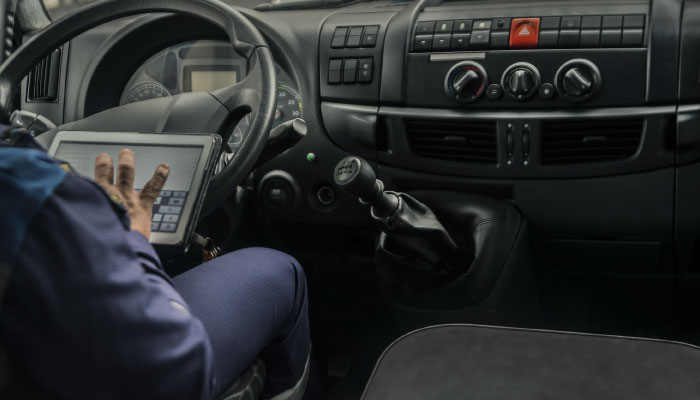Sounds like a dream. It’s no dream, it’s the reality. Businesses are increasingly moving into the realm of e-commerce, and logistics plays an increasingly important role in business operations. For firms not fully in the e-commerce domain, logistics is still one of the most important aspects of cost saving in the supply chain. Undoubtedly, cost effectiveness is paramount in the supply chain, no matter what industry and domain you are in.
and logistics plays an increasingly important role in business operations. For firms not fully in the e-commerce domain, logistics is still one of the most important aspects of cost saving in the supply chain. Undoubtedly, cost effectiveness is paramount in the supply chain, no matter what industry and domain you are in.
The evolution of the Omni-Channel and the Internet of Things (IoT) is impacting every industry, from retail and food companies to logistics companies, transportation providers, 3PL and freight providers. The rise of e-commerce and Omni-Channel may drive up the costs in the supply chain, but “last mile” increases in costs can be offset in the logistics network through intermodal transportation.
What is Intermodal Transportation?
Intermodal transportation is concerned with the use of a combination of different modes of transport to transport freight in an intermodal container or vehicle, without handling the freight itself when changing modes. Containerization has been a huge factor in intermodal integration. Organizations now use intermodal transportation for the shipment of everything from grain and coal to furniture and cars.
According to the Association of American Railroads (AAR), long-haul freight transportation, particularly using rail and at least one more mode, was used to move 13.7 million units in 2015.
Why is it SO Popular?
The trucking industry has been plagued by capacity and driver shortages, forcing the hand of many organizations to look for alternate sources of transportation. On the other hand, intermodal transportation, with its combination of different transportation modes, offers economic and environmental benefits. Intermodal shipping is particularly useful over the long haul. Intermodal transportation offers the ability to streamline logistics and lower transportation costs – by pairing the appropriate mode of transportation with the most suited supply chain stage.
It also ends up reducing traffic congestion, accidents, and even relieves overstressed infrastructure. One train can replace a number of trucks and save on fuel costs and even lost inventory costs, among others. Intermodal shipping is also beneficial to the environment, as it is often more fuel efficient than over the road transportation. It also forces organizations to comply with environmental standards and support green initiatives. According to the EPA, the use of intermodal transportation over 1000 miles reduces greenhouse gas emissions by 65%, as compared to road transportation.
But does it offer flexibility in the world of on-time and just-in-time (JIT) delivery requirements?
Despite its cost benefits, intermodal transportation is criticized for its inability to keep up with rapidly changing consumer preferences, which require JIT and On-Time delivery; something that the trucking industry has no issues with. While intermodal shipping does have longer lead times due to cross country shipping, some of the restrictiveness of longer lead times can be circumvented by storing surplus goods within 50 miles of a final destination, ensuring the product is available for just-in-time delivery. Even the costs of storing in bulk are lower than keeping products on trucks for stand-by delivery.
At the end of the day though, the use of intermodal transportation depends on each organization’s individual requirements. To minimize supply chain costs and risks, shippers must explore the potential in intermodal transportations, by leveraging the reliability of trucking for timely deliveries with the cost and fuel efficiencies of rail.
To know more about logistics cost effectiveness, and how to offset “last mile” costs in the logistics network through intermodal transportation, check out webinar by expert Dave Malenfant.




